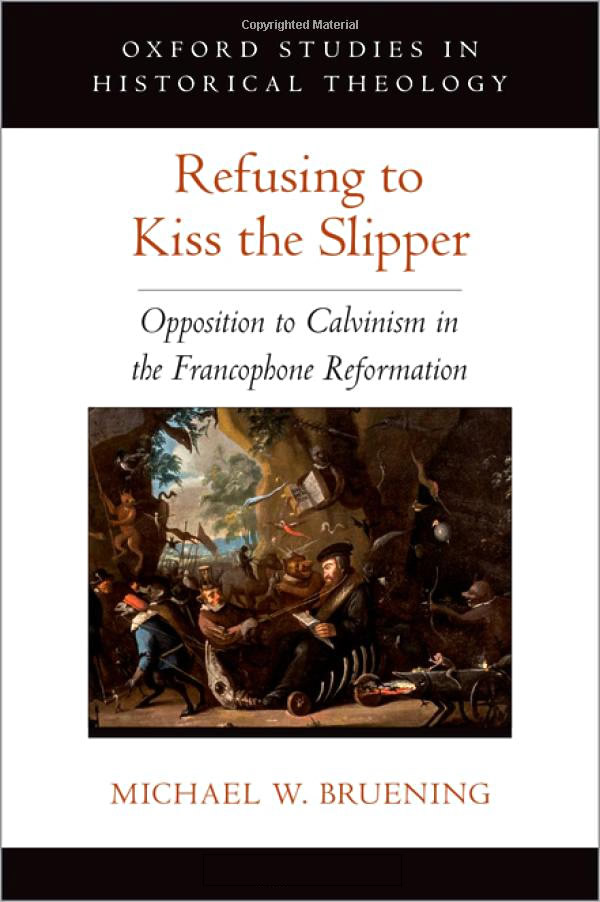History professor writes new ‘history of the losers’ of the Protestant Reformation
Posted by Laura Studyvin
A Missouri S&T history professor has written a new book about the history of the Protestant Reformation, using new digital tools to find patterns in centuries-old letters.
Dr. Michael Bruening’s book Refusing to Kiss the Slipper: Opposition to Calvinism in the Francophone Reformation was published this month by Oxford University Press. The book, as Bruening puts it, tells “a history of the losers” of the Reformation, specifically the people who were opposed to John Calvin, a 16th century theologian who had an enormous influence on the Reformation in the French-speaking world.

While part of the point of the Reformation was breaking away from the authority of the pope in Rome, Calvin’s opponents felt he was “setting himself up as a new pope.” At the time, faithful Catholics would kiss the pope’s slipper as a show of deference, hence the title of the book.
“We have known for a long time that John Calvin had enemies, but they typically have been treated as idiosyncratic individuals,” says Bruening, associate professor and interim chair of history and political science at Missouri S&T. “One of the main arguments of my book is that the anti-Calvinists were not merely “lone wolves” setting themselves against Calvin but instead constituted a network of associates themselves.”
By using data from anti-Calvinist letters such as the date, sender and recipient, and their locations, Bruening was able to create network maps that show how and when different individuals were connected.
“Network mapping is one of the ways the humanities have recently been taking advantage of the tools of the digital age,” says Bruening. “This helps to inform us which figures were central among any group of correspondents, and who the other individuals were in their circle of friends.”
Researching this history comes with major challenges, according to Bruening.
“The vast majority of personal documents have been lost or destroyed over the centuries,” says Bruening. “In many cases, I had to find material on them in the surviving records of their opponents, which are obviously biased against them.”
Besides researching and teaching Reformation-era history, Bruening also studies medieval and Renaissance history and religious history. He is a member of the American Historical Association, Sixteenth Century Society, and the Society for Reformation Research. He has published several other books on the Reformation, including Calvinism’s First Battleground: Conflict and Reform in the Pays de Vaud, 1528-1559, and A Reformation Sourcebook: Documents from an Age of Debate.
Bruening earned bachelor of arts and master of arts degrees from the University of Virginia. He earned a Ph.D. in late medieval and Reformation studies from the University of Arizona in 2002. Prior to joining Missouri S&T, Bruening taught at Concordia University in Irvine, California.
About Missouri University of Science and Technology
Founded in 1870 as the University of Missouri School of Mines and Metallurgy, Missouri University of Science and Technology (Missouri S&T) is a STEM-focused research university of over 7,600 students and part of the four-campus University of Missouri System. Located in Rolla, Missouri, Missouri S&T offers 99 different degree programs in 40 areas of study, including engineering, the sciences, business and information technology, education, the humanities, and the liberal arts. Missouri S&T is known globally and is highly ranked for providing a strong return on tuition investment, exceptional career opportunities for graduates, and an emphasis on applied, hands-on learning through student design teams and cooperative education and internship opportunities. Missouri S&T is the top public engineering university of 2021 as ranked by College Factual. For more information about Missouri S&T, visit www.mst.edu.
Leave a Reply